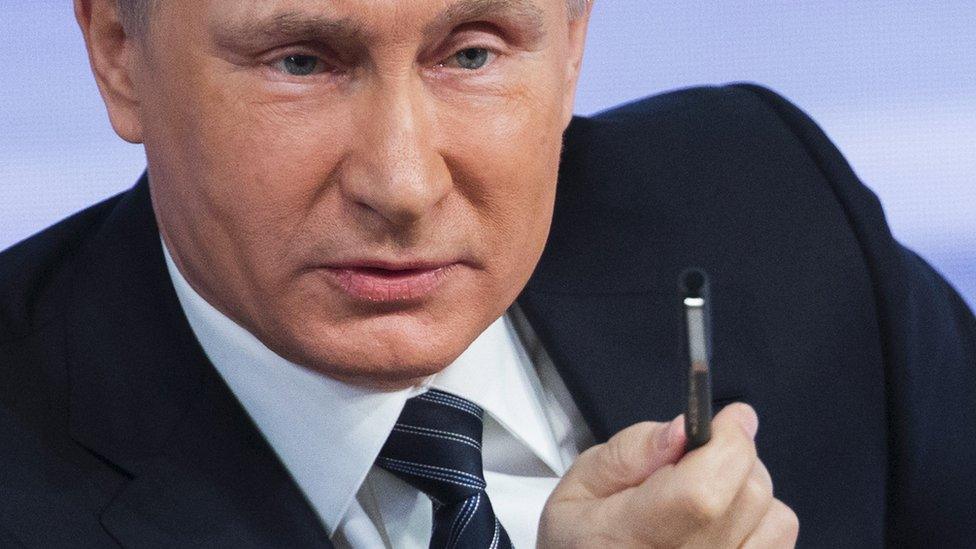Israel-Turkey ties: Is there light on the horizon after hiatus?
- Published
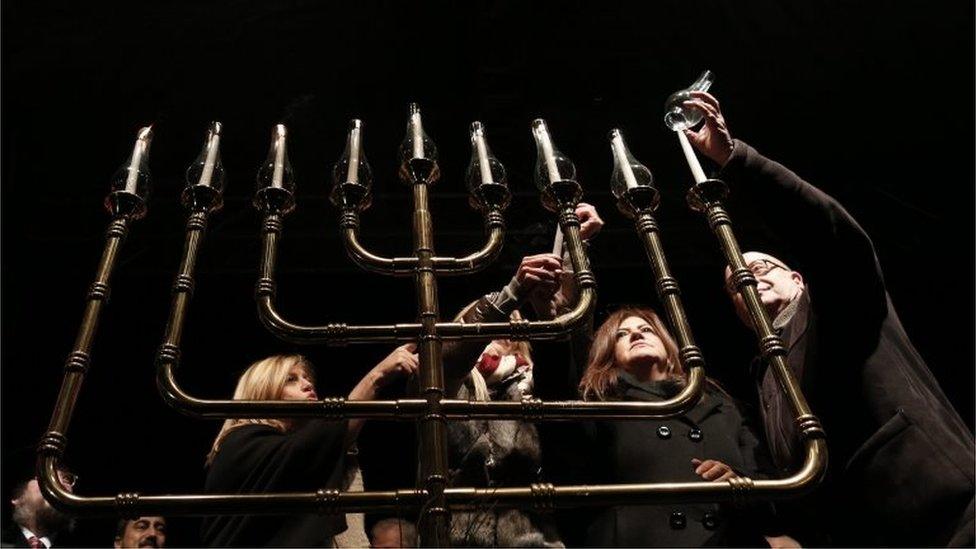
Turkish-Jewish people light a chanukiah as they celebrate in Istanbul
Early this month, Turkey's Jewish community was able to observe the Hanukkah festival in a public space in central Istanbul - for the first time in modern Turkey's history.
This gesture by the Turkish authorities followed a statement from President Recep Tayyip Erdogan, who said he thought he could "fix ties" with Israel.
Relations broke down in 2010 after the Mavi Marmara flotilla raid that left 10 Turkish citizens dead.
The pro-Palestinian activists were killed in clashes with Israeli troops who boarded the boat, which was aiming to breach Israel's maritime blockade of the Gaza Strip. Israel enforces the blockade, it says, to stop arms reaching Palestinian militants in the territory.
Mr Erdogan said earlier this week that normalised relations between Israel and Turkey would benefit the whole Middle East region.
Israel was quick to respond. "Israel has always sought stable relations with Turkey and is constantly looking for ways of how to get there," Foreign Ministry Director-General Dore Gold said in a statement.
Now Israel says the two sides have reached a preliminary agreement to restore relations after secret talks in Switzerland.
So is this the end of the long diplomatic hiatus between the two countries?
Preconditions
Michael Herzog, a retired lieutenant general of the Israeli army and a former military advisor to the defence ministry, says Mr Erdogan's statements were duly noted by the Israeli government circles.
"There is a lot of interest to explore whether or not Israel can make peace with Turkey," he says.
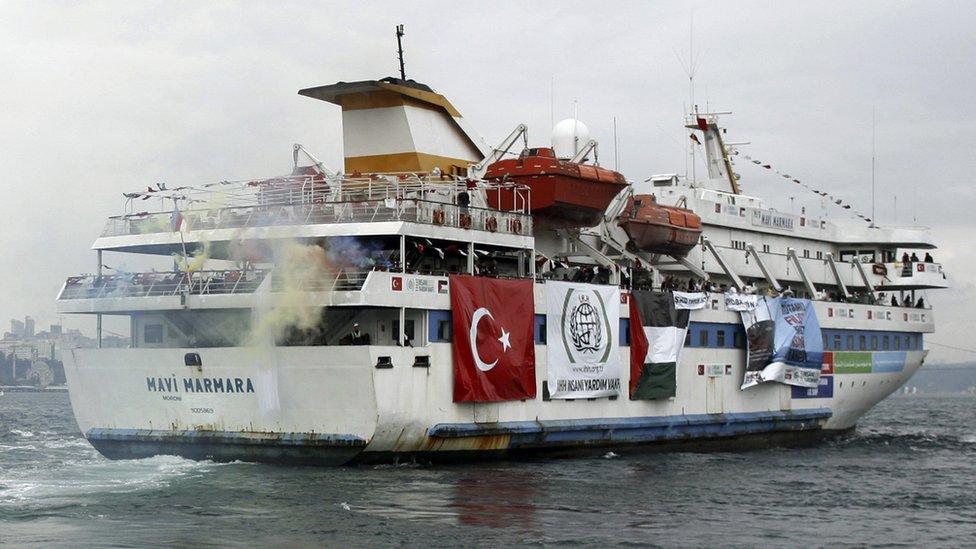
Israel-Turkey ties have been frozen for five years since the deadly flotilla raid
Turkey listed three preconditions for a possible normalisation of relations between the two countries.
The first of these was "an apology" from the Israeli government for the Mavi Marmara flotilla incident. This has already been met, as Israeli Prime Minister Benyamin Netanyahu apologised to Mr Erdogan for "any errors that could have led to loss of life" in March 2013.
Turkey also wants compensation to be paid to the families of the victims of the raid. According to Israel media reports, Israel has agreed to pay the relatives $20m, external (£13.4m).
The last precondition is the lifting of the blockade on Gaza.
"It's surprising to see that Erdogan said the region needs normalised relations with Israel and then went back to state those preconditions stipulated five and a half years ago," says Dan Arbell from the Washington-based Brookings Institute.
"From Israel's point of view, the lifting of the Gaza blockade is not going to happen.
"If Erdogan insists on this issue, this process is not going to move forward," he adds.
'Extreme dependency'
Following the Mavi Marmara raid, Turkey and Israel withdrew their ambassadors and ended their joint military exercises, although trade and tourism continued at about the same levels.
There have previously been talks of a return to normal relations, but many argue that recent regional and domestic changes may have improved the chances.
After Turkey downed a Russian jet over Syria last month, Moscow shelved plans for the Turkish Stream natural gas pipeline project - designed to boost Russian gas exports to Turkey.
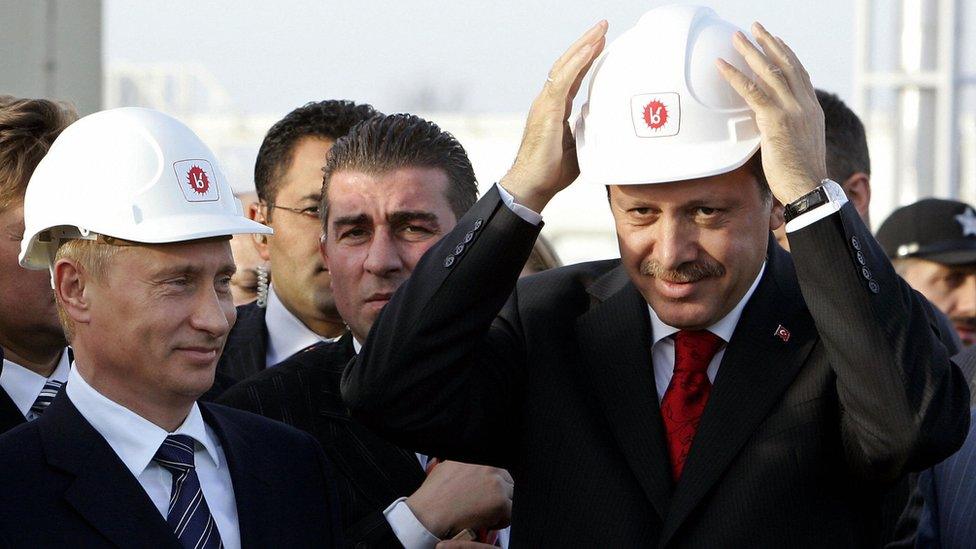
Mr Putin and Mr Erdogan were previously working together to boost gas supplies but now trade insults
Turkey already imports 56% of its natural gas from Russia and natural gas serves 32.5% of Turkey's overall energy consumption.
Necdet Pamir, an expert on energy in Bilkent University in Ankara, says Israeli natural gas could be an alternative to Turkey's "extreme dependency" on Russian gas.
However, he says it could take years for this alternative to become a reality.
"Israeli gas, Qatari gas or Iraqi gas cannot possibly meet Turkey's needs if Russia ends the gas flow in the short-term."
Isolation
Experts say there could be other factors at play.
"Erdogan's comments are most likely the result of Turkey's relative regional isolation following tension with Egyptian President [Abdul Fattah al-] Sisi and Syrian leader [Bashar al-] Assad as well as its recent crisis with Russia," says Israeli analyst Calev Ben Dor.
Meanwhile, Ceyhun Cicekci from the Turkey-based think tank Orsam says the conflicts in Syria and Iraq and the rise of the so-called Islamic State could have pushed Israel and Turkey closer towards one another.
A possible rapprochement between the two countries and the reactivation of the military cooperation could send a strong message to the Syria-Russia-Iran axis, he says.
- Published18 December 2015

- Published23 March 2013
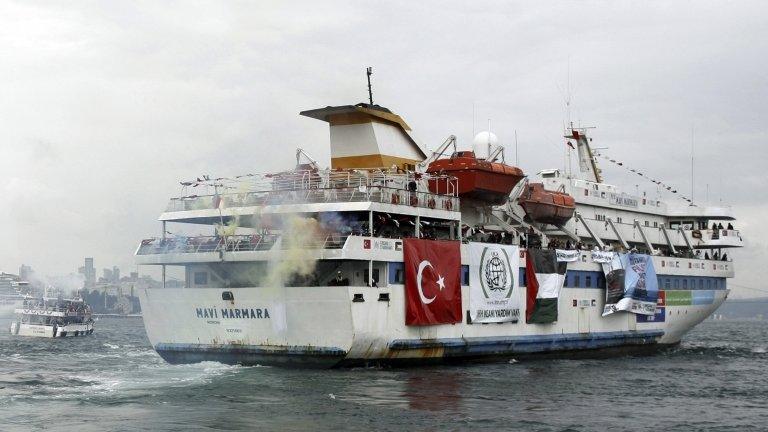
- Published17 December 2015
